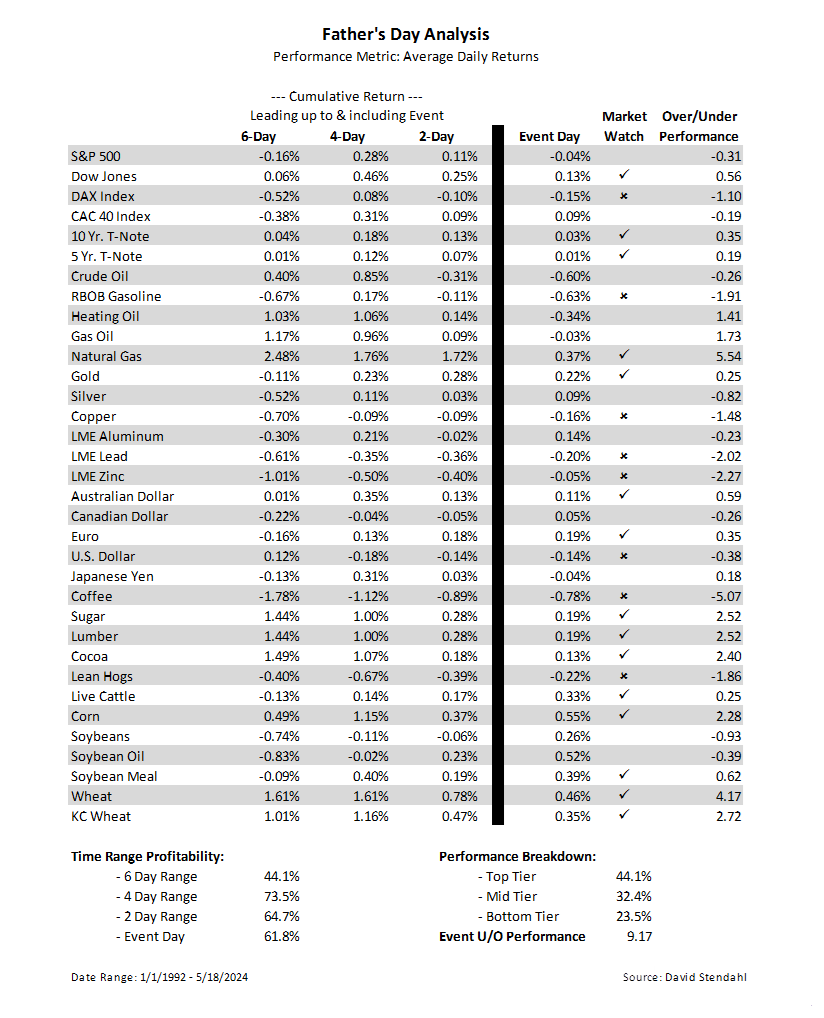Event: Father’s Day
On the third Sunday of June, dads across the nation celebrate Father’s Day. It was Richard Nixon who signed a proclamation making Father’s Day an official holiday way back in 1972. It was a long time coming. Mother’s Day, the analogous holiday, had been celebrated since 1913 when President Woodrow Wilson gave his approval. A mere 58-year difference between the two parental holidays. In the end, for the sake of dad’s, it’s better late than never. Now Dads can have their own day to celebrate with breakfast in bed, receiving a new tie, and watching the final round of the U.S. Open.
The questions is … do the markets relax or stress out heading into Father’s Day?
Market Comparision
How do the markets perform leading up to and including Father’s Day? The analysis table below breaks down each of the 30+ markets into four separate trading periods. These time frames span 6-days, 4-day, 2-days, and the event day itself. The return performance for each time frame is measured against its normal performance during the year to calculate a final over or underperformance return. This metric quantifies, in percentage points, the advantages or disadvantages associated with Father’s Day. Markets highlighted with a checkmark or an “x” should be closely monitored for potential strengths or weaknesses heading into the event.

Calendar Breakdown by Events
All trading involves risk. Leveraged trading has large potential rewards, but also large potential risk. You must be aware of the risks and be willing to accept them in order to invest in the futures and options markets. Don’t trade with money you can’t afford to lose. This is neither a solicitation nor an offer to Buy/Sell futures or options. No representation is being made that any account will or is likely to achieve profits or losses similar to those discussed. The past performance of any trading system or methodology is not necessarily indicative of future results.
Our strategies have not been developed based on knowledge of or with reference to your particular circumstances, such as financial position, goals, risk-reward preferences, tax situation, brokerage arrangement, investment or trading experience, and so forth. Hence no content or model published here constitutes a recommendation that any particular security, portfolio of securities, transaction, or investment strategy is suitable for any specific person. You alone are solely responsible for determining whether any investment, security or strategy, or any other product or service, is appropriate or suitable for you based on your investment objectives and personal financial situation. More
